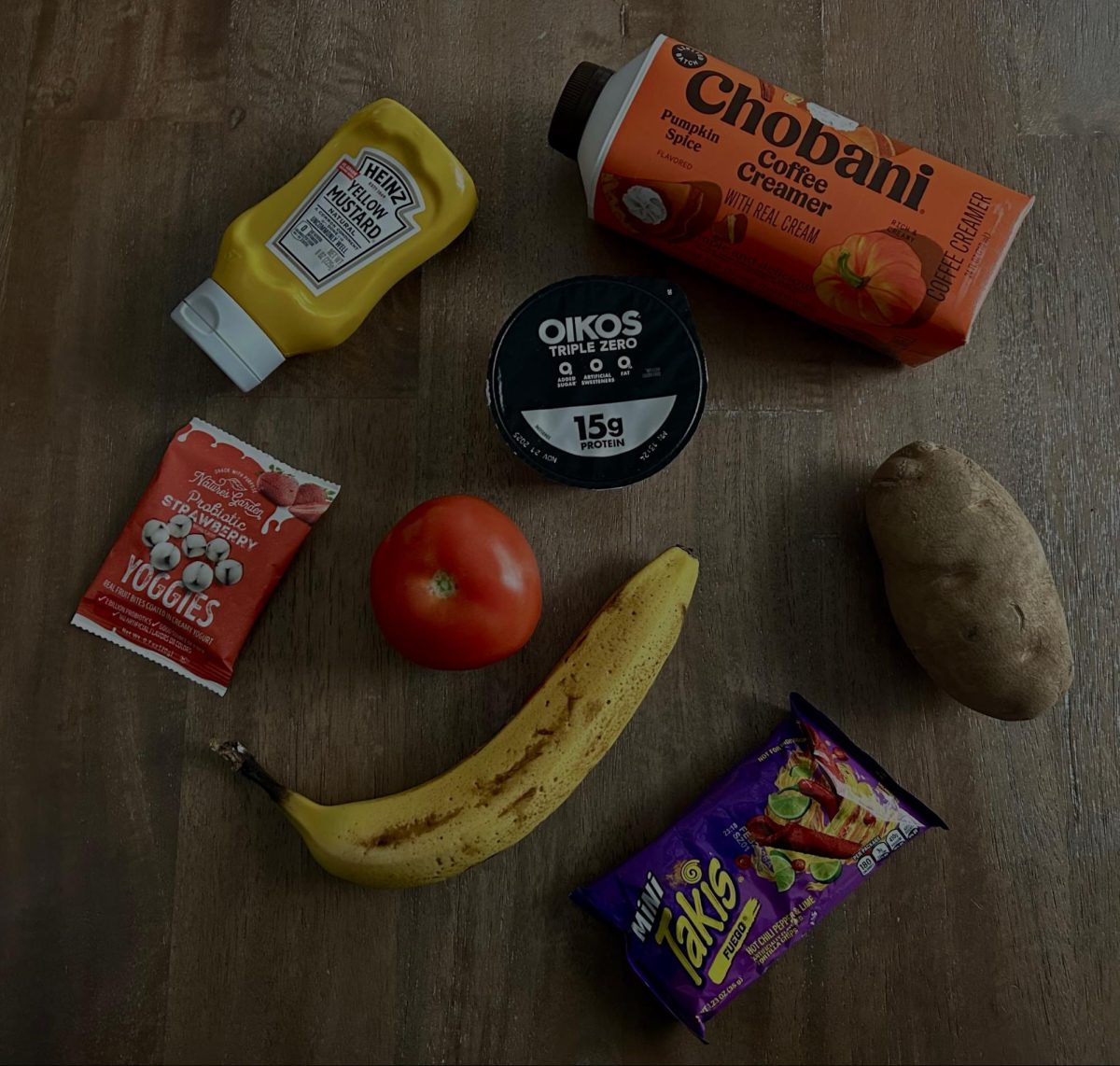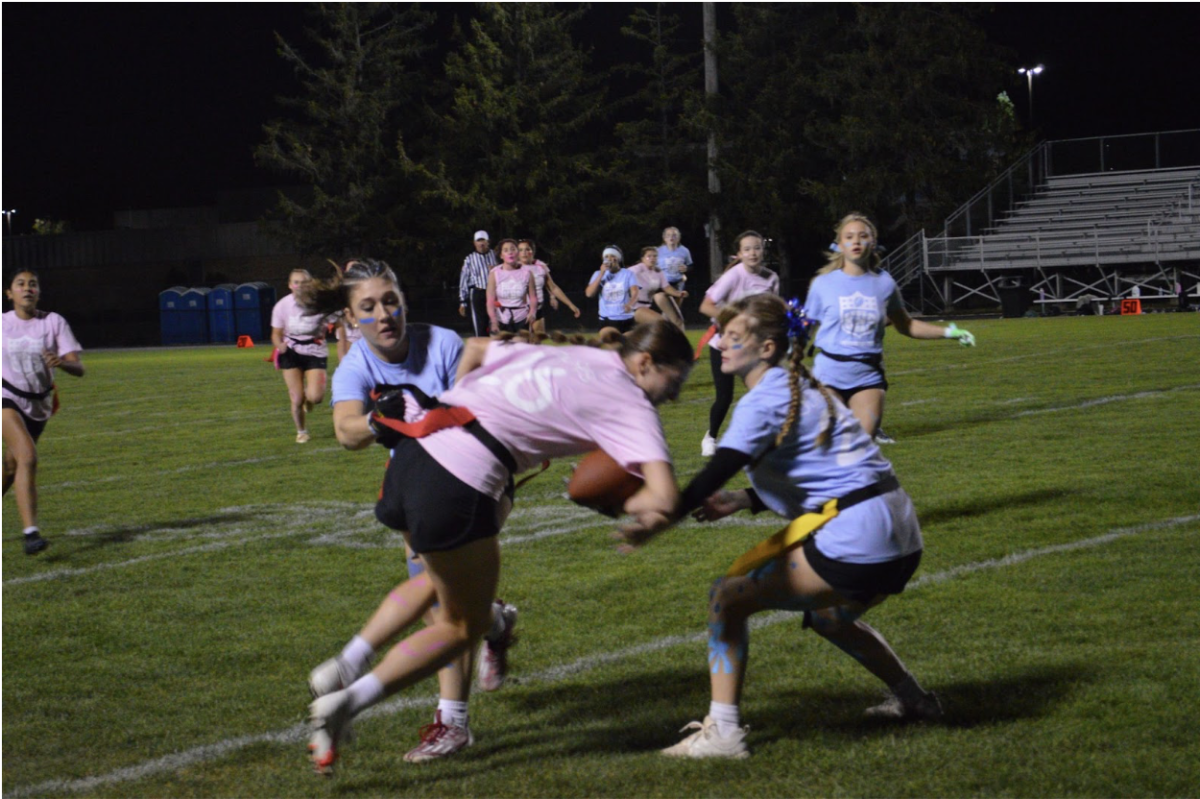★★★★☆
Sabrina Carpenter has spent the past two years trying to transform her look from a Disney alum into one of pop’s biggest and magnetic stars. In her recent albums, Emails I Can’t Send and Short n’ Sweet, she has proved that you can blend being emotionally vulnerable with maintaining campy humor. Her latest record, Man’s Best Friend, arrived on Aug. 29, with high expectations, and it’s both her most daring and divisive project to date. With producers and writers Jake Antonoff, John Ryan and Amy Allen, the album runs just under 40 minutes, yet it covers a wide spectrum of sounds and moods.
This record is a colorful mix of disco-pop, synth-rock, country twang and funky beats, which often take after musical icons like ABBA, Donna Summer, Dolly Parton and even Shania Twain. It’s definitely a bold approach, but one that reflects the album’s identity: playful, unpredictable and at times, a bit chaotic.
The album starts off strong with the single Manchild, which opens the album with a bang, and it’s easy to see why it quickly rose to being a #1 hit. Cheeky, infectiously catchy and sharp, it’s a perfect representation of Carpenter’s pop persona. Over the bright and polished beat, she dismantles the archetype of the immature and emotionally unavailable man, doing so with humor instead of bitterness. The result of all of this is a biting yet playful smash hit, which perfectly sets up the rest of the album.
Another standout song is the second single off the album, Tears, which is a sparkly disco track that channels artists like Donna Summer and ABBA. With its lush strings and Carpenter’s dramatic vocals, it becomes a very euphoric song. Manchild leans into sarcasm, whereas Tears feels more grand and cathartic, showing her wide range as a writer and performer.
Fan favorite House Tour demonstrates Carpenter’s love for figurative language, turning the act of inviting someone over to her house into a metaphor for intimacy and vulnerability. On paper, the concept may sound silly, but her playful storytelling makes it incredibly effective. Each lyric feels like another room she is showing off, balancing humor with genuine emotion.
However, not every song hits as hard as the standouts. My Man on Willpower toys with a clever idea but doesn’t quite achieve the same punch, falling back on wordplay that feels more risque than substantial. Similarly, Goodbye aims for more bittersweet vulnerability but gets a little lost in the album’s louder and bolder tracks. These songs aren’t bad, but they prove the Bad Reviews correct: when Carpenter leans too heavily on innuendo or jokes, the emotional depth sometimes takes a backseat
The inconsistency is part of what makes this album polarizing. The highs are incredibly high, as tracks like Manchild and Tears sparkle with personality and pop brilliance. But the weaker cuts feel more like sketches rather than fully-finished songs. For fans, it adds to the album’s very chaotic charm; for critics, it makes the record feel uneven and messy.
The music itself isn’t the only bold choice. The cover art for the album that shows Carpenter on all fours, pulled by the hair of a faceless man, sparked some immediate backlash. Some saw it as objectifying, while her true fans saw it as satire against the way women are often treated in pop culture. Carpenter herself brushed off the debate, insisting she chose the art because of how well it matched the album’s theme.
The critical response has been mixed but generally positive. Pitchfork gave the album a rating of 7.9, praising its “facepalm-clever pop songs.”
Fans have also been split. Some adore the theatrical chaos, calling it her most adventurous album yet, while others find it less catchy than last year’s Short n’ Sweet.
At its best, Man’s Best Friend is Sabrina Carpenter firing on all cylinders: funny, theatrical and sonically adventurous. Songs like Manchild, Tears and House Tour capture the perfect balance of humor, pop craftsmanship and confidence. At its weakest, the album sometimes leans too far into innuendos without digging deeper, leaving some tracks to feel more like filler compared to the more bold songs.
Still, the record succeeds because of Carpenter’s personality. She knows exactly who she is, and she commits fully to the role of cheeky provocateur. Whether you love it or find it uneven, Man’s Best Friend proves Carpenter is no longer just an up-and-comer; she is exactly where she needs to be and is still willing to take huge risks in her musical career.













